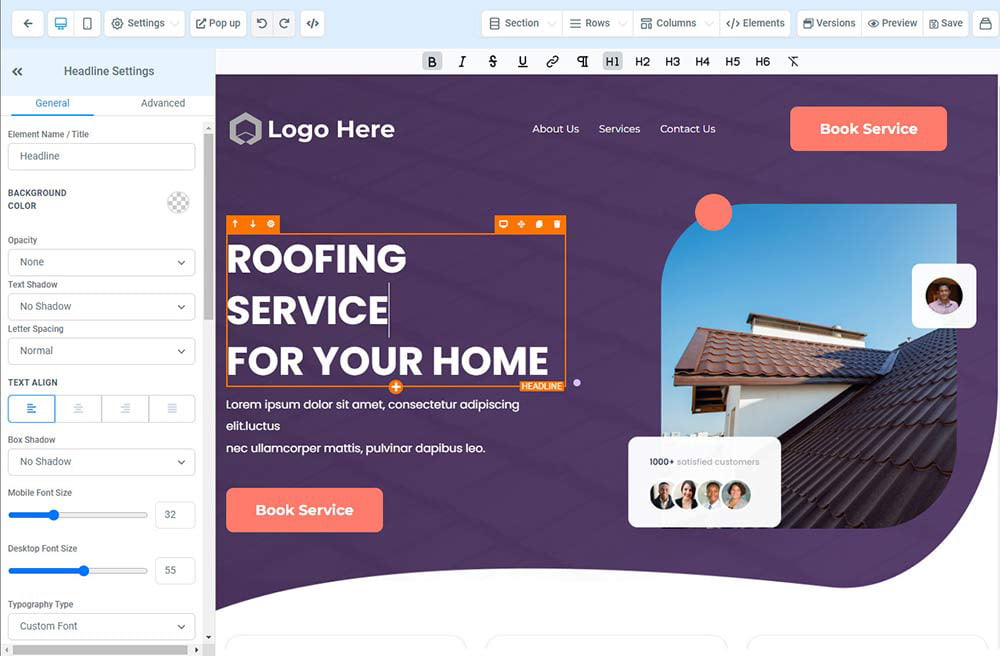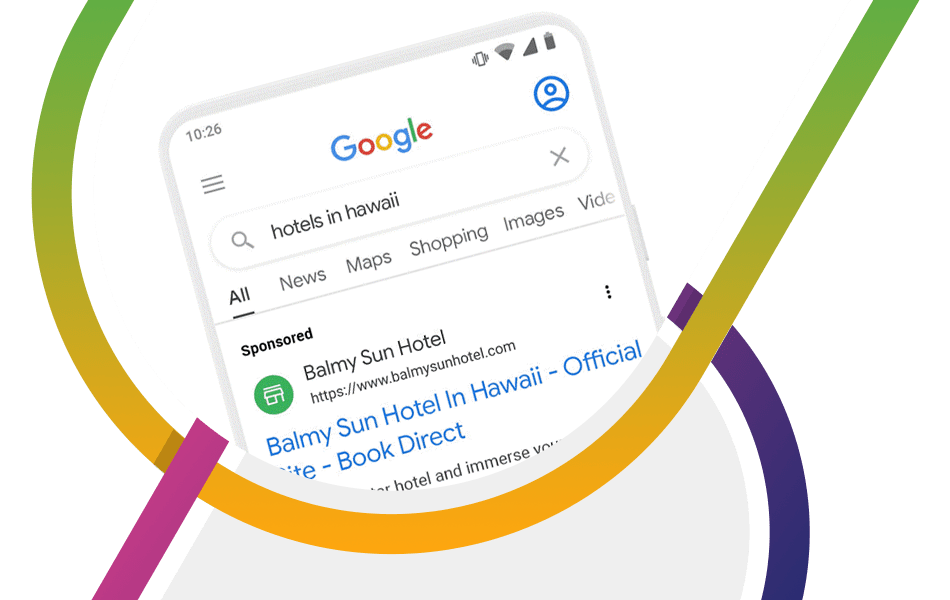
Free Google Ad Review
Our team of PPC experts will review your ad campaigns and provide a free report showing exactly how to improve your results.
What are your Google Ads Strategies?
The following 14 tips will help you focus your Google ads strategy, but are also helpful when discussing your Google ads management with your agency.
Understanding Your Audience

A crucial first step in any digital marketing effort is understanding your audience. In the context of Google Ads, this means identifying their interests, demographics, search behaviours, and more. For example, suppose you’re a fitness company targeting individuals interested in home workouts. You may focus on keywords and phrases related to home exercise equipment, workout routines, and health and wellness.
Leveraging Keyword Match Types
Selecting the right keyword match types can significantly enhance the effectiveness of your campaign. Broad-match keywords will show your ad to a broad audience, but might not be as targeted. Phrase match keywords will display your ad for searches that include your keyword phrase in the exact order. Exact match keywords will only trigger your ad when the exact phrase is searched. For instance, if you’re selling artisan coffee beans, an exact match keyword could be “buy artisan coffee beans online.”
Implementing Negative Keywords
Negative keywords help filter out irrelevant traffic. For example, if you’re selling high-end jewellery, you might use “cheap” as a negative keyword to avoid appearing in searches for inexpensive jewellery. This ensures that your ads only appear in searches that align with your products and services, saving you money on wasted clicks. We recommend creating an account-level negative keyword list and then a campaign-level list, allowing you to have greater control.
Utilising Ad Extensions
Ad extensions can provide additional information to make your ads more enticing. For instance, a ‘call’ extension allows potential customers to call your business directly from the ad, while ‘location’ extensions can guide local customers to your physical store. ‘Sitelink’ extensions can direct users to specific pages on your site, like your product pages or FAQs, providing a more seamless user experience.
Optimising Landing Pages

Your landing page should match the promise of your ad copy. For example, if your ad promotes a 50% discount on first purchases, the landing page should reflect this offer. A well-optimised landing page with a clear call-to-action (CTA) can significantly increase conversions. This will also support your quality score.
Using Remarketing Lists for Search Ads (RLSA)
RLSAs allow you to customise ads for people who have previously visited your site. For example, if someone visits your clothing store and looks at a particular pair of jeans, you can create a custom ad that promotes those same jeans to that specific visitor when they search for related terms on Google.
Monitoring and Adjusting Bids
Reviewing your campaign’s performance regularly and adjusting bids as necessary can significantly improve ROI. For example, if you find that the keyword “organic skincare products” is generating a high number of conversions, you might increase your bid on this keyword to maximise visibility.
Optimising for Mobile

In today’s digital landscape, mobile optimisation is non-negotiable. Ensure your ads and landing pages are optimised for mobile devices. For instance, your site should have a responsive design, easy navigation, and fast load times on mobile devices to provide a positive user experience.
Tracking Conversions
Setting up conversion tracking allows you to see users’ actions after they click on your ad. For example, you might track purchases, form submissions, or newsletter sign-ups. This data helps you understand which campaign elements are working and which need tweaking.
Experimenting with Different Ad Formats
Google Ads offers various ad formats, each with its own benefits. Search ads are great for targeting specific keywords, while display ads are excellent for building brand awareness. Video ads can be highly engaging and effective if you have compelling video content. For example, a software company might use video ads to demonstrate how their product works and its benefits to the user.
Understanding Quality Score
The Quality Score is Google’s rating of the quality and relevance of your keywords and PPC ads. It determines your cost per click (CPC) multiplied by your maximum bid to decide your ad rank in the ad auction process. Factors affecting Quality Score include your click-through rate (CTR), the relevance of each keyword to its ad group, the quality and relevance of your landing page, and the relevance of your ad text. By optimising these factors, you can achieve a higher Quality Score, which can lead to lower costs and better ad positions.
Geo-Targeting
Geo-targeting allows you to target your ads to specific locations. This can be particularly useful if you have a physical store or your services are only available in certain areas. For example, a local restaurant might only want its ads to show to people within a 10-mile radius of its location.
Scheduling Ads
Ad scheduling, also known as dayparting, enables you to specify specific hours or days of the week when your ads should be displayed. If you know your audience’s habits, you can schedule your ads to coincide with when they will most likely be online. For instance, if you’re a B2B company, you might schedule your ads to run during business hours when decision-makers are likely to be at work.
Using Google Ads Scripts
Scripts are JavaScript codes to automate standard procedures or interact with external data in Google Ads. For instance, you can use scripts to automatically adjust bids based on weather conditions or stock levels. If you’re selling umbrellas, you might increase your bids whenever it’s forecasted to rain in your target locations.
With these strategies, you’re well-equipped to manage and excel in your Google Ads campaigns. Remember that success with Google Ads isn’t about setting and forgetting but constantly optimising and refining your campaigns. You can significantly boost your ROI and drive substantial business growth with consistent effort and strategic adjustments.

Need help with your website and marketing?
Book a FREE growth strategy session with our experts
Our award-winning team will review your website and marketing goals to provide you with crucial insight and advice.

4.9 STAR
Google reviews
With 10+ years of experience, Link Digital has helped hundreds of businesses to succeed online. We can help yours too!

